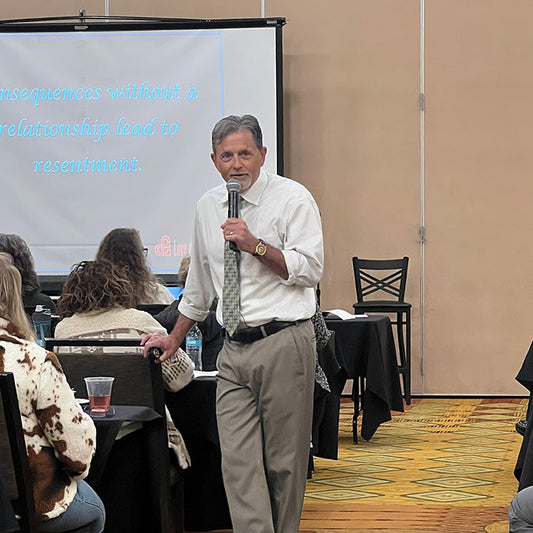In many ways, there seems to be an epidemic of entitlement among kids. Many parents call us about kids who believe that they can do no wrong and hold an unhealthy expectation that they are simply owed things in life—without having to work for them. Love and Logic can help you slay the beast of entitlement by equipping you with powerful processes for reversing these symptoms of entitlement.
Kids held captive by the beast of entitlement must be encouraged to take positive risks that provide opportunities to develop different beliefs. Perhaps the only way to see the benefits of personal responsibility is by doing something positive and experiencing the intrinsic joy it provides. Entitled children also need to experience difficulties as well as learn that they can overcome difficulties through perseverance.
The beast of entitlement dominates and subdues its victims by leading them to believe that they are dependent upon others for success. Breaking the chains of this misconception requires that they see themselves achieving hard-earned victories. Entitlement also tricks people into believing that life is simply a giant slot machine, roulette wheel, or lottery game. When children learn to attribute their level of success to their level of perseverance and personal responsibility, the beast loses its grip on their hearts.
The Love and Logic approach helps parents replace the sense of entitlement in their kids by guiding them to develop healthy expectations. Here are some examples of how you can help your kids shift from a sense of entitlement to healthy expectations.
First, expect kids to solve their problems. Whenever kids encounter difficulties, wise adults ask lots of questions like “What do you think you’re going to do?” and “What’s your plan?” They also make statements like, “I’m interested to see how you solve this.” As kids experience problems, these adults convey expectations that kids will solve problems – especially the problems they cause. This will prevent them from expecting someone else to solve all their problems.
Second, expect kids to contribute. Chores are the #1 antidote to entitlement. Kids who contribute appreciate what they have and are far less likely to take the contributions of others for granted. Get them contributing to the household/family and watch the entitlement suffocate.
Third, expect kids to earn the things they get. This doesn’t mean we don’t get kids gifts or commit unsolicited acts of love. But the things they often ask for, we can ask how they plan to earn (all or part of) those items or privileges. From purchases, to playing sports, to driving, avoid making things free but instead, expect young people to work to earn all or part - and see if they don’t appreciate those things the most.
Thanks for reading!























































